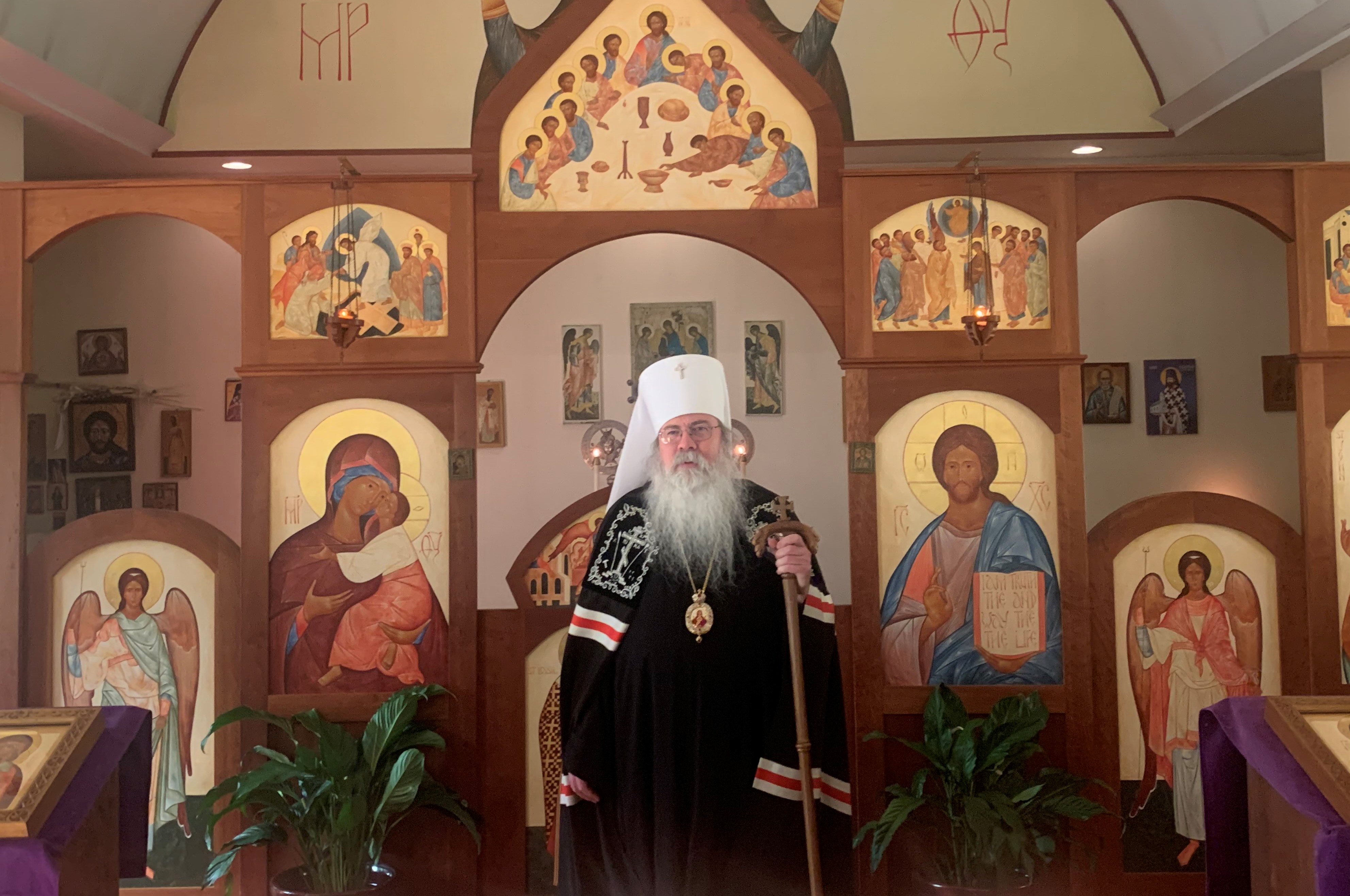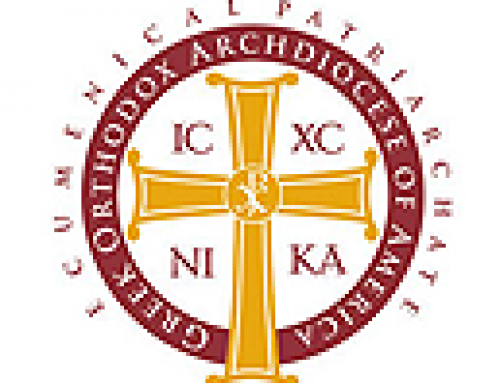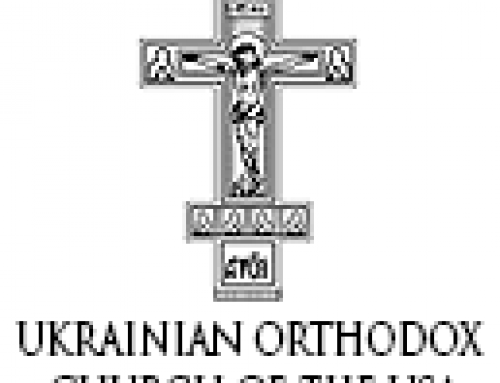This post was originally published on this site
Sermon on Forgiveness Sunday,
the Casting Out of Adam and Eve
Metropolitan Tikhon
March 1, 2020
In the Name of the Father, and of the Son, and of the Holy Spirit. Amen.
Glory to Jesus Christ!

As we set out today on the eve of the Great Fast, we begin our journey with forgiveness on this Forgiveness Sunday, starting out in the same way we hope to end it: calling everyone brothers in the Resurrection. We greet each other, asking forgiveness of one another and granting forgiveness, reconciling our differences and returning to unity with one another. Our unity with one another leads us to unity with God, Who created us for union with Him.
God created the Paradise of delight for us, giving us everything we needed for earthly life, placing Adam and Eve, our forefathers, in the garden as its caretakers. He fashioned them out of the earth and clothed them with glory, giving them dominion over everything in the garden. He walked through the garden with them, and they spoke to Him, enjoying union with God and perfect communion.
Yet Adam shunned this union with God. He ate the forbidden fruit, disobeying the one commandment God had given him, thereby severing union with God. For his disobedience, he was cast out from the glory of Paradise, no longer able to behold the face of God, but instead condemned to toil and labor for his food and to return to the dust from which he was taken. As our hymns tell us, “Adam sat before the gates of Eden, crying out, Woe to me! No longer can I see my Lord, my God and Creator.”
We have all followed the example of Adam in our own sins. Our sinful actions separate us from God, severing the union He desires and causing us to weep bitterly outside the gates of Eden. Our disobedience to His commandments strip us of the robe of grace and cause us to be naked, with only skins and fig leaves to cover us. We, the children of Adam, are likewise condemned to toil and labor, and ultimately to return to the dust from which we were taken. Our sins have closed the gates of Paradise to us, and we are unable to see its beauty and behold the face of God.
But this reality, this separation from God, does not have to stay this way. Our Lord Jesus Christ, in His eternal compassion, desires not the death of us sinners, but rather that we would turn from our wickedness and live. He freely chose to heal our separation, bringing God to man so that man might be brought back to God. He became one of us, a human being, subjecting Himself to everything that we endure, so that He might heal the wound of the serpent and bridge the divide of separation between us and God. He suffered mocking, pain, torture, and ultimately death on the Cross, all so that He might free us from suffering and make our earthly deaths a path to resurrection. He gives us His Holy Body and Precious Blood in the Eucharist, giving us the Bread of Life, with which we are nourished, healed, and granted eternal life. Through Christ, no longer do we return to the dust without hope. He has reopened the gates of Eden, as He said to the penitent thief on the Cross: “Today you will be with Me in Paradise.” He offers us reconciliation with God, returning us to our former beauty, clothing us once again with the robe of grace and allowing us to partake of His Kingdom.
Our path to resurrection, our path back to Paradise, to reconciliation with God, begins with forgiveness. Our Lord tells us today that if we forgive each other, God will also forgive us. Each of us has sinned. Each of us has offended our neighbor. And the path is open to us to reconcile with each other and with God in forgiveness. God is eager to forgive us of each and every sin we commit, but we must also forgive one another of each and every offense we have committed against each other.
Today, we will celebrate Vespers with the Rite of Forgiveness. We have the opportunity to come before each other and ask forgiveness of each other, so that we may all enter into the Great Fast with unity and love. We also have the opportunity to offer forgiveness to each other, fulfilling the commandment of the Lord and turning from our sins against our neighbors.
As we come before each person today, let us put aside all anger, all malice, all envy, and let us forgive and be forgiven. As we will sing at the end of our Lenten journey, on the great and glorious day of Pascha, “Let us call ‘brothers’ even those that hate us and forgive all by the Resurrection.” In our forgiveness, we will unite with our brothers and sisters, and by that union, we will draw near to God. As we turn from our wickedness, our sins, and our divisions, we will be brought back to Paradise and live eternally with our Lord. And as we forgive others, so too God will forgive us of all we have done. In this way, our garment of grace and beauty will be restored and we will be brought to God, glorifying Him throughout the ages: Father, Son, and Holy Spirit, now and ever and unto ages of ages. Amen.



